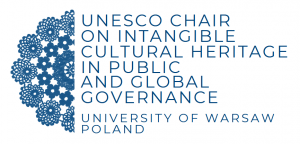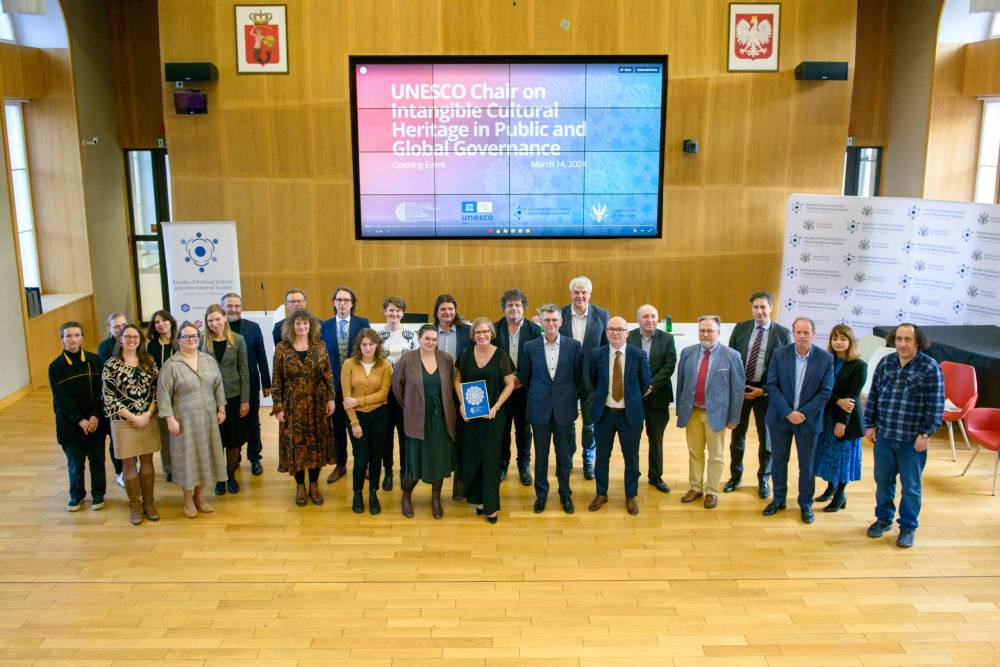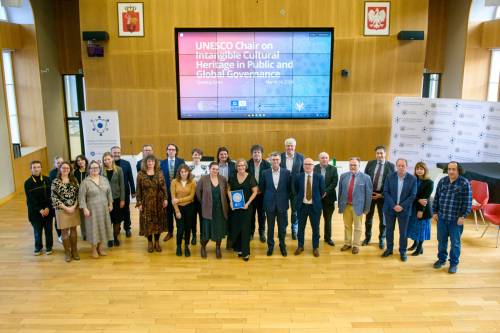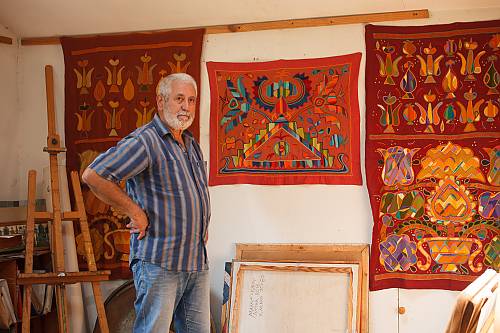The network of UNESCO Chairs welcomes a new Chair dedicated to living heritage, specifically on Intangible Cultural Heritage in Public and Global Governance. Based at the Faculty of Political Sciences and International Studies at the University of Warsaw, Poland, this Chair was officially launched on 14 March 2024, in the presence of the Rector of the University and several other high-level guests.
The opening was followed by a first series of roundtables on Intangible Cultural Heritage and the Challenges of Contemporary Global Governance in which national and international experts discussed issues related to governance in urban contexts as well as the global level, as well as the role that artificial intelligence (AI) can play in those processes.
The interdisciplinary team, chaired by Prof. Hanna Schreiber, intends to investigate questions such as: how should a given community – including the international community – govern its intangible cultural heritage resources? When are these resources considered to be public goods and when not? What are the criteria for effective and ethical heritage governance? What will be the most appropriate tools and methodologies to address these issues, including those stemming from artificial intelligence?
The Chair’s overall aim is to reflect on the question of what is considered – under what conditions and by whom – as constituting effective, ethical, and sustainable governance of intangible cultural heritage. Its work will be contextualized within several frameworks, including the MONDIACULT 2022 Declaration, the Agenda 2030, UNESCO’s Midterm Strategy for 2022-2029, and the UNESCO recommendations on Ethics in AI.

Now composed of 19 chairs across the globe, the network of UNESCO Chairs dedicated to living heritage is instrumental in researching key contemporary issues related to living heritage, while educating future planners, managers, and decision-makers in the field of living heritage safeguarding. They play a crucial role in deepening the discussions by offering knowledge and advice from the academic world on implementing the 2003 Convention for the Safeguarding of the Intangible Cultural Heritage at both national and international levels.
- Intangible Cultural Heritage (ICH) in Public and Global Governance website: https://www.ichgovernance.com/
- Learn more about the network of UNESCO Chairs on living heritage




